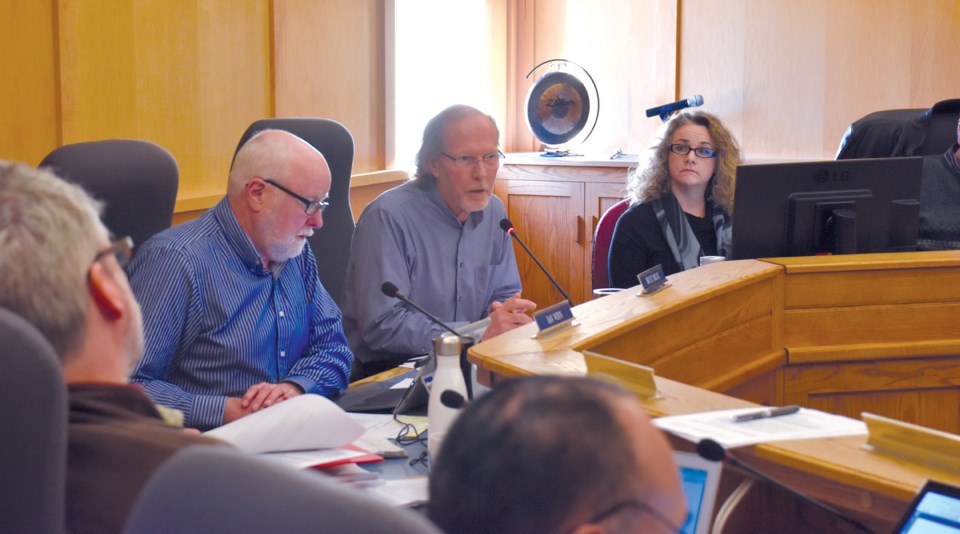At a recent Sunshine Coast Regional District (SCRD) committee, directors agreed compensation for their job isn’t perfect, but were divided on how to fix the problem.
Roberts Creek director Mark Lebbell originally raised concerns about director compensation in 2016, saying he was worried about “director sustainability.” Staff and directors have been reviewing compensation since then with the aim of implementing changes to the remuneration bylaw prior to the October 2018 election.
At the April 26 meeting, staff compared compensation among 18 other districts, as well as factors districts use to calculate compensation, such meetings attended, electoral area population size and percentage of budget spent on director pay. It also noted the federal government’s repeal of a tax break that saw elected officials taxed on only two-thirds of their income.
Municipalities across B.C. are proposing to compensate for that loss by increasing officials’ gross income.
Several directors, including Area A director Frank Mauro, Lebbell, Sechelt director Doug Wright and SCRD chair Bruce Milne, said they wanted to see compensation for what Lebbell called a “clawback” of the tax-free benefit.
In 2018, according to a staff report, the SCRD chair makes a base rate of $37,256.52, the vice chair makes $11,623.13 and directors make $9,325.60. Municipal directors get paid municipal salaries as well as SCRD pay, and all directors get paid extra for attending and chairing meetings. Rural area directors get a supplement of $1,335.55.
Despite the problems with compensation, staff found that with an average pay of $30,198, SCRD directors are among the highest paid of the 18 regional districts used in the comparison. However, the remuneration makes up 0.4 percent of the budget, which places them 15th in terms of percentage of budget spent on director compensation.
Mauro and Lebbell also criticized the SCRD’s current pay-per-meeting structure, which sees rates double when meetings pass the three-hour mark. “It lends itself to the potential of a director showing up not having done the reading … slowing the meeting down for a number of reasons and financially benefitting. That doesn’t incentivize the kind of efficiencies that I think that we like to incentivize here,” Lebbell said.
Elphinstone director Lorne Lewis said the rural area supplement isn’t enough, and gave a detailed account of the hours he has devoted to his work on constituency issues, which he said brings him well below the living wage. “I’m making about $8 an hour working on District Lot 1313 and we’re probably halfway there.”
The 2015 living wage for the Sunshine Coast is $19.25, according to Living Wage Canada.
While Milne agreed rural directors should get a supplement, he didn’t think it should be “orders of magnitude” different. Municipal directors represent their constituents on all of the same regional district functions, said Milne. “We get just as many calls on water, we get just as many calls on logging Mount Elphinstone.”
During the meeting, West Howe Sound director Ian Winn announced that he would not be seeking re-election, adding that while compensation wasn’t a major factor, he hadn’t been fully prepared for the time demands. “That’s the question: is the job supposed to be part time or is it supposed to be a full-time job?” he asked, noting that he has put in up to 50 hours a week. “It takes me out of the house on average for 22 different events … and I get compensated for about nine of those,” he said, calling the rural supplement “very inadequate.”
Town of Gibsons director Jeremy Valeriote said a higher salary will attract quality candidates, and more of the budget should go towards remuneration. “I absolutely understand the reluctance to not get too far out of stretch with the other regional districts, but I’m going to throw out the idea that that shouldn’t be a factor… If our vision is for a high-calibre board then … I would suggest the 0.4 per cent doesn’t adequately represent the work that’s done,” he said.



